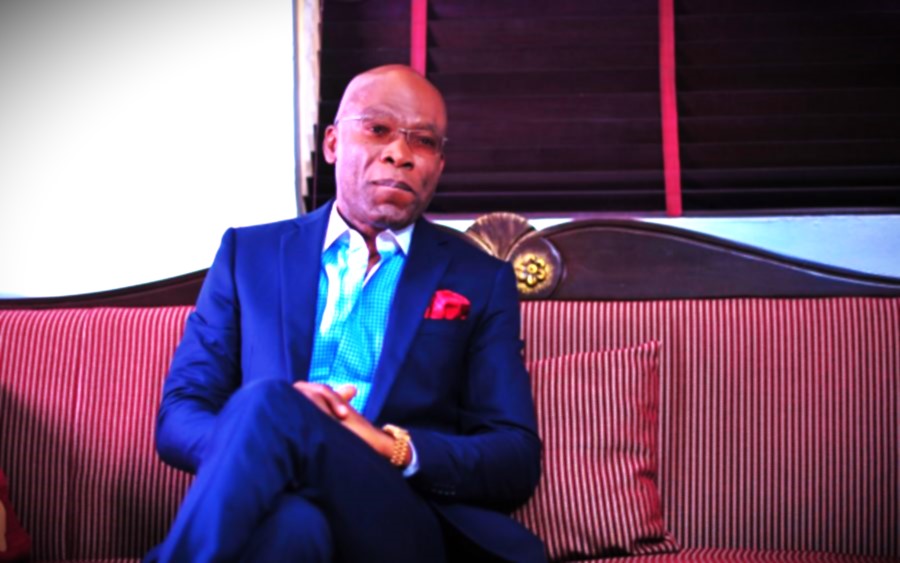Leo Stan Ekeh Speaks on Vision, Legacy and Tech Nation-Building
Visionary entrepreneur and Chairman of Zinox Group, Leo Stan Ekeh, has reaffirmed his enduring commitment to building Nigeria’s digital economy, revealing that the founding of Zinox was driven by a...

Visionary entrepreneur and Chairman of Zinox Group, Leo Stan Ekeh, has reaffirmed his enduring commitment to building Nigeria’s digital economy, revealing that the founding of Zinox was driven by a desire to inspire confidence, create infrastructure, and empower the next generation of digital leaders.
Table Of Content
Speaking recently to a gathering of entrepreneurs and tech professionals, Ekeh reflected on his decades-long journey and what inspired his decision to return to Nigeria despite lucrative job offers from global tech giants like Apple after his studies in India and Ireland.
“I chose to come back and build from the ground up because I wanted to create faith in our digital economy,” Ekeh stated. “It was never about quick profit—it was about preparing Nigeria for the digital future.”
The Making of a Tech Titan
Ekeh’s career has been marked by disruptive innovations that have shaped Nigeria’s ICT landscape. In the early 1990s, he modernized Nigeria’s publishing and multimedia sectors by introducing desktop publishing and computer graphics, transforming operations in leading institutions like University Press, Punch, Daily Times, and Vanguard.
He then went on to pioneer major technological deployments in Nigeria’s energy, banking, and electoral systems—playing a historic role in digitizing Nigeria’s elections through a massive ICT rollout with INEC in 2010. This single project was one of the biggest digital deployments in Africa and brought credibility to Nigeria’s voting process.
Driving Global Partnerships & Local Impact
Through Zinox Group, Ekeh has facilitated strategic partnerships with leading global OEMs including HP, Dell, Microsoft, Apple, Cisco, Lenovo, Samsung, and more—laying the groundwork for a thriving digital ecosystem. Today, Nigeria benefits from an influx of technological expertise, local job creation, and increased competitiveness due to these global relationships.
His influence isn’t limited to Nigeria. In Gambia, he delivered the country’s largest e-library and wireless cloud infrastructure project. In Guinea Bissau, Zinox also led a successful nationwide digital rollout for the country’s elections.
Zinox Group: From Local Startup to Global Conglomerate
What began as a tech hardware company has evolved into a diversified business empire. Zinox Group now spans e-commerce, pharmaceuticals, real estate, entertainment, and ICT infrastructure, standing as one of Africa’s most impactful tech-driven conglomerates.
Despite challenges—ranging from financial loss, sabotage, and blackmail—Ekeh has remained unwavering. His legacy is now inseparable from Nigeria’s digital transformation story.
Impact in Numbers: Nigeria’s Digital Boom
-
ICT now contributes 19.78% to Nigeria’s GDP
-
Over 163 million internet users
-
₦611 trillion in fintech transactions processed in 2023
-
E-commerce exceeding $13 billion annually
-
Digital economy valued at over $700 billion
These milestones stand in stark contrast to the 1990s, when internet access was under 0.5%, and tech infrastructure was nearly nonexistent.
Empowering the Future: Women in Tech
In a major push for inclusion, Ekeh has championed female tech empowerment. In March 2024, he celebrated the graduation of 400 female tech professionals, unveiling an ambitious plan to train 10,000 women in tech within five years, addressing the gender gap in Nigeria’s tech space.
Message to Young Entrepreneurs: Purpose Over Profit
Ekeh’s advice to emerging founders is clear: focus, integrity, and nation-building should come before short-term gains. He cautioned against emulating corrupt elites and instead urged youth to build enduring systems that benefit Nigeria’s long-term development.
🟢 Bottom Line:
Leo Stan Ekeh’s journey—from rejecting Silicon Valley offers to becoming a cornerstone of Nigeria’s digital economy—is a blueprint in tech leadership, resilience, and patriotism. As Nigeria’s digital future accelerates, his legacy as a nation-builder continues to inspire a new generation of innovators.









No Comment! Be the first one.